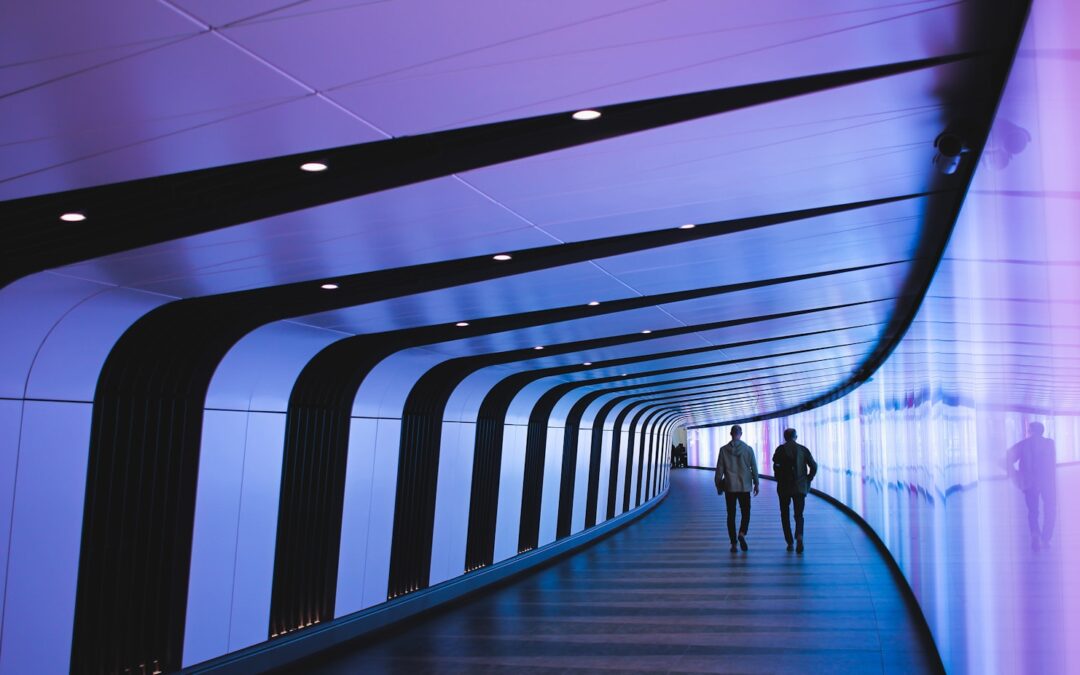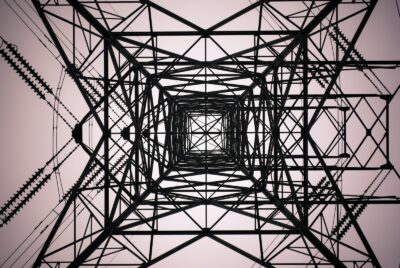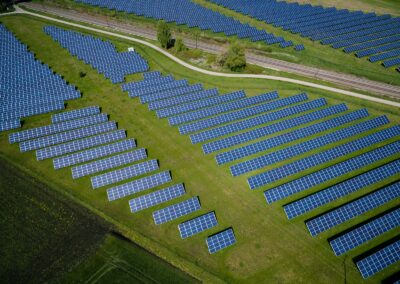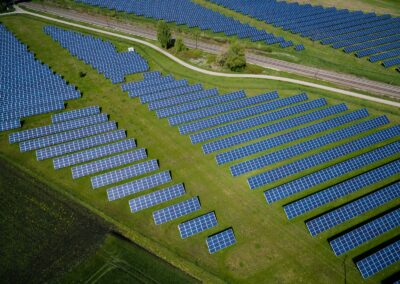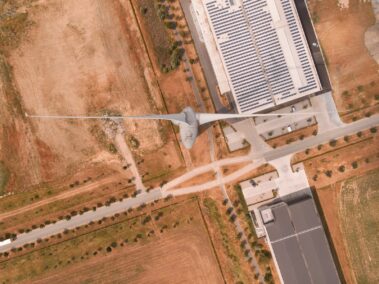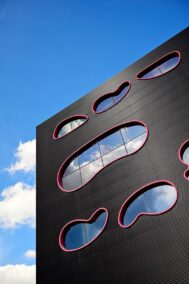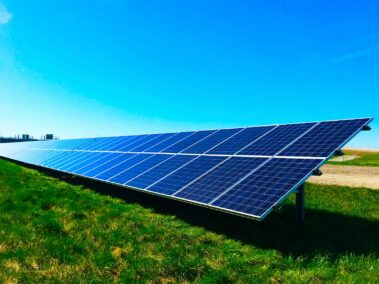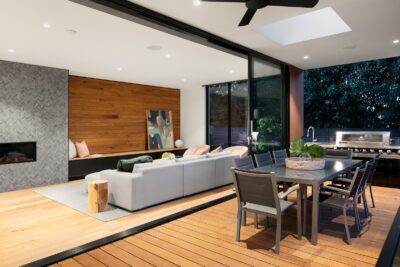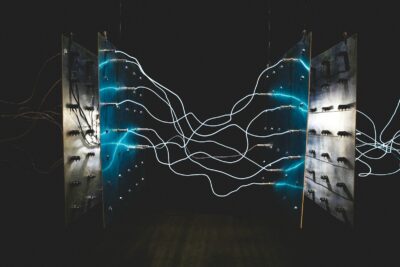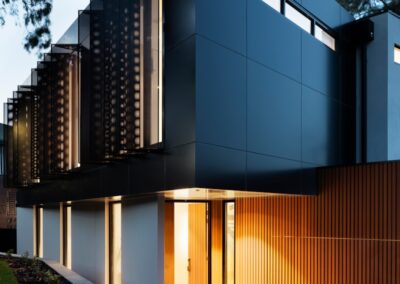Transforming Homes with Renewable Energy
Embracing Solar and Wind Power
The sustainable homes of the future are designed to incorporate renewable energy sources such as solar and wind power to achieve unparalleled energy efficiency. In progressive cities like Riyadh and Dubai, where modern technology meets ambitious development goals, the integration of renewable energy into residential projects is a growing trend. Solar panels and wind turbines are being installed in new developments, transforming how energy is harnessed and utilized.
Solar power is particularly prominent in the sunny climates of Saudi Arabia and the UAE. Advances in photovoltaic technology have made solar panels more efficient and affordable, allowing homes to generate a significant portion of their electricity needs. Solar energy systems can be integrated into rooftops and even building materials, such as solar shingles, to maximize energy capture without compromising aesthetic appeal.
Wind power, while less common in residential settings, is also being explored for its potential to contribute to sustainable home energy solutions. Small-scale wind turbines can be installed in suitable locations to complement solar energy systems, providing a balanced and reliable renewable energy mix. For business executives and entrepreneurs in the construction and real estate sectors, investing in renewable energy technologies offers a competitive advantage and aligns with global sustainability goals.
Enhancing Energy Efficiency
Energy efficiency is a cornerstone of sustainable home design. By integrating advanced energy management systems, smart homes can optimize the use of renewable energy and reduce overall consumption. AI-driven systems play a crucial role in this regard, using data analytics to monitor and adjust energy usage patterns in real-time, ensuring that homes operate at peak efficiency.
In Dubai, smart energy management systems are becoming standard in new residential projects. These systems use AI to learn from residents’ habits and preferences, automatically adjusting heating, cooling, and lighting to minimize energy waste. Additionally, energy-efficient appliances and fixtures are being incorporated into home designs, further reducing the environmental footprint.
For mid-level managers and project developers, understanding and implementing energy-efficient technologies is essential for creating sustainable homes. By leveraging AI and IoT, they can design homes that not only meet current energy efficiency standards but also anticipate future advancements in technology and sustainability practices. This proactive approach enhances the value of residential properties and contributes to the broader goal of reducing carbon emissions.
Building for Sustainability
Sustainable home design extends beyond energy efficiency to include materials and construction practices. The use of sustainable building materials, such as recycled steel, bamboo, and reclaimed wood, reduces the environmental impact of construction and ensures long-term durability. Innovative construction techniques, like modular building and 3D printing, also play a role in creating efficient and sustainable homes.
In Riyadh, developers are increasingly adopting green building standards and certifications, such as LEED (Leadership in Energy and Environmental Design), to demonstrate their commitment to sustainability. These standards promote the use of energy-efficient systems, water conservation measures, and sustainable materials, ensuring that new homes meet rigorous environmental criteria.
For entrepreneurs and leaders in the construction industry, embracing sustainable building practices is not only a moral imperative but also a smart business strategy. By prioritizing sustainability, they can attract environmentally conscious buyers and investors, enhancing their market position and contributing to a more sustainable future. This approach aligns with the broader vision of sustainable urban development in cities like Riyadh and Dubai.
Innovative Technologies in Sustainable Homes
Integrating Blockchain and AI
Blockchain and AI technologies are playing an increasingly important role in the development of sustainable homes. Blockchain can be used to create transparent and secure energy trading systems, allowing homeowners to buy and sell excess energy generated from renewable sources. This decentralized approach to energy management promotes efficiency and sustainability.
In the UAE, blockchain-based energy trading platforms are being explored as part of smart city initiatives. These platforms enable residents to track their energy production and consumption, participate in peer-to-peer energy trading, and access real-time data on their energy usage. AI algorithms can optimize these transactions, ensuring that energy is distributed efficiently and cost-effectively.
For business leaders and tech entrepreneurs, the integration of blockchain and AI in sustainable home projects offers significant opportunities for innovation and growth. By developing and deploying these technologies, they can create more efficient and resilient energy systems, reduce costs, and enhance the sustainability of residential communities. This forward-thinking approach is essential for staying competitive in a rapidly evolving market.
The Role of the Metaverse
The metaverse, a virtual shared space created by the convergence of virtually enhanced physical reality and physically persistent virtual space, is also influencing the design and operation of sustainable homes. In the metaverse, architects and developers can create digital twins of real-world buildings, allowing for virtual simulations and testing of sustainable features before implementation.
In Dubai, the use of the metaverse in urban planning and development is gaining traction. Developers can visualize and optimize building designs, energy systems, and community layouts in a virtual environment, identifying potential issues and improvements without the need for physical prototypes. This approach reduces waste, saves time, and enhances the overall sustainability of construction projects.
For project managers and urban planners, leveraging the metaverse offers a new dimension of innovation in sustainable home design. By utilizing virtual simulations, they can create more efficient and sustainable living environments, improve stakeholder collaboration, and streamline the planning and development process. This integration of virtual and physical realities represents a significant advancement in the field of sustainable urban development.
Leadership and Management in Sustainable Home Projects
Effective leadership and management are critical to the success of sustainable home projects. Project managers must navigate complex regulatory environments, coordinate with diverse stakeholders, and ensure that projects are completed on time and within budget. Strong leadership skills are essential for overcoming these challenges and delivering high-quality sustainable homes.
In Saudi Arabia and the UAE, project managers are at the forefront of sustainable home development, driving innovation and ensuring that projects meet rigorous environmental standards. They must balance the technical demands of integrating renewable energy systems with the practical considerations of construction and design, all while maintaining a focus on sustainability.
For aspiring leaders in the field of sustainable home development, developing strong project management skills is crucial. By mastering the principles of project management, they can lead successful sustainable home initiatives and contribute to the broader goal of creating environmentally friendly and energy-efficient residential communities. This focus on leadership not only drives individual success but also supports the overall advancement of sustainable living practices.
Conclusion
The sustainable homes of the future represent a significant step forward in the quest for energy efficiency and environmental responsibility. By integrating renewable energy sources such as solar and wind power, incorporating advanced energy management systems, and utilizing sustainable building materials, these homes offer a model for sustainable living. For business leaders, entrepreneurs, and project managers, the development of sustainable homes presents exciting opportunities for innovation and growth. By investing in and leading sustainable home projects, they can contribute to the creation of modern, energy-efficient, and environmentally friendly residential communities that enhance the quality of life for residents and promote global sustainability.
—
#SustainableHomes #RenewableEnergy #SolarPower #WindPower #EnergyEfficiency #ModernTechnology #SaudiArabia #UAE #Riyadh #Dubai #AI #Blockchain #TheMetaverse #GenerativeAI #BusinessSuccess #Leadership #ManagementSkills #ProjectManagement

